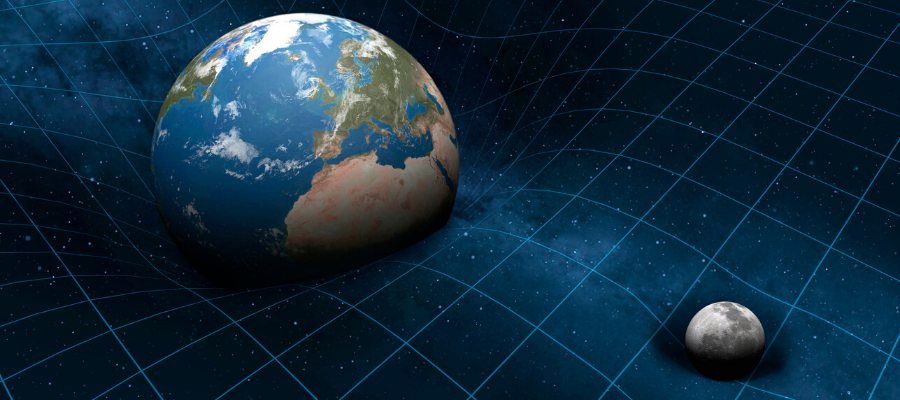Has Science Replaced Religion?
Mar 23, 2004Has science replaced religion? Can one be religious and maintain a scientific viewpoint? Does belief in evolution undermine morality or belief in God, or vice versa?

Quantum mechanics is an astoundly successful, mathematically elegant, explanatorily deep, even beautiful scientific theory. Yet it reveals a truly puzzling world of micro-entities: entities that can be at two places at once, that can "travel" from here to the other side of Alpha Centauri in an instant without traversing the space in between, that behave like waves when unobserve but like particles when observed. Join John, Ken and their guest, Jenann Ismael as they try to make philosophical sense of the strange world of quantum reality.
John and Ken begin the show by discussing some of the counterintuitive aspects of quantum physics. John says "Common sense drools, quantum physics rules."
Ken introduces Jennan Ismael. The discussion proceeds. There are three things that distinguish the quantum world from the classical word. (1) Indeterminism, (2)Nonlocality and (3) Holism. Indeterminism tells us that even if you know the current state and location of very small particles, you can't tell, from the laws you have, where those small particles will be or what their states will be in the future with certainty. Its momentum and position are indeterminate. Non-locality is the fact that you can have a pair small particles that interact with each other, later separate and go to different places. However, by interacting with one of these particles, you can affect the other even though there is a sizable distance between them. Holism is the negation of the idea that even if you know all properties of quanta that make up a complex object, the complex object has some properties that you can't infer from the properties of the quanta.
In classical physics, Newton thought that if we knew enough about an object at a time, we could predict its future states simply by applying our laws. Quantum physics marks a sharp rupture from the clockwork world of Newton. Our notions of space, time and position depend on our interactions with the world. These notions break down when we get down to the mathematics of quanta. So, Jennan suggests, maybe we should speak "quantum mechanicese" and not talk about position or time or other common sensical constructs. Jeff calls and says that quantum mechanics models are useful as long as they predict data and that there is all there is to it. Philosophers, on the other hand, ask questions such as "what is the world made of?" and seek answers to these metaphysical questions by studying quantum physics. If we are going to rely on quantum physics for answering metaphysical questions, Jeff's approach will give us problems.
Does quantum mechanics leave room for freedom and consciousness? The problem of free will got problematic after the birth of Newtonian physics, according to which future is predictable from initial states objects have. Quantum physics instead incorporates a sizable indeterminism. However, whether indeterminate, unpredictable motions of particles justify free will is an open question. If quantum physics is true, then people are as indeterministic as vacuum cleaners. How quantum physics contributes to free will debate is not very clear.
Comments (1)
Eddie L
Tuesday, June 8, 2021 -- 5:47 PM
Maybe it is dead for you,Maybe it is dead for you, alive for me, and merely a matter of opinions, so whatever it is, it is subjective, and can be explained and showed…you must observe it to determine its state, so you see what you want to see. Neither is real, or rather, nothing is real.